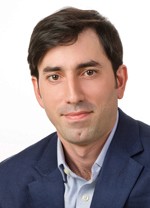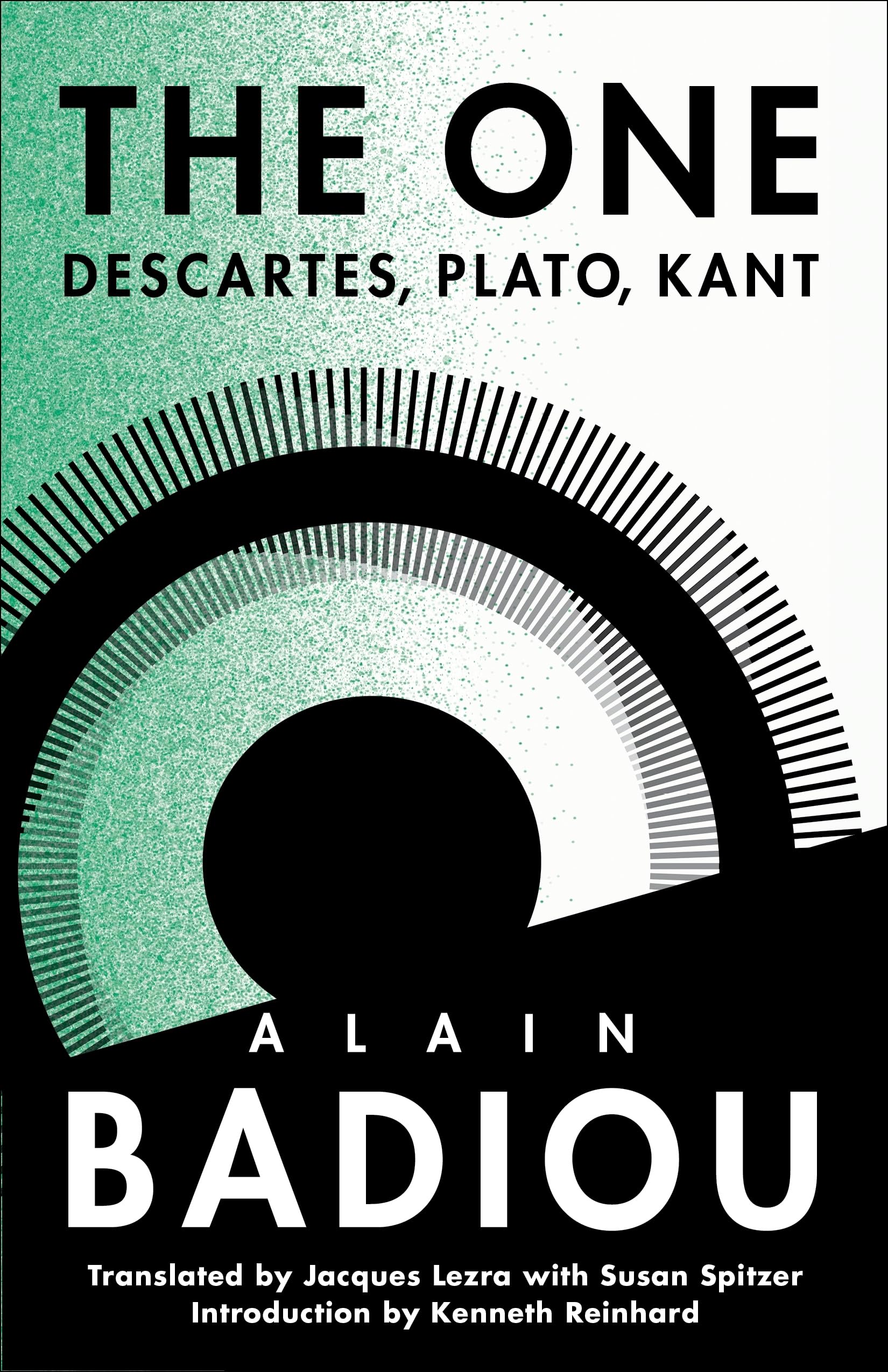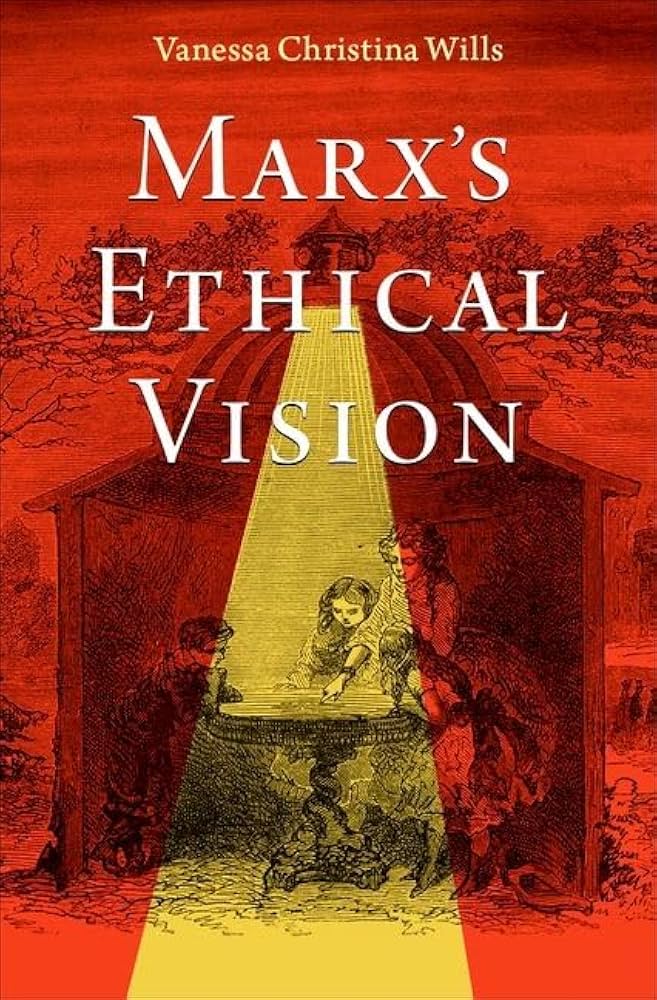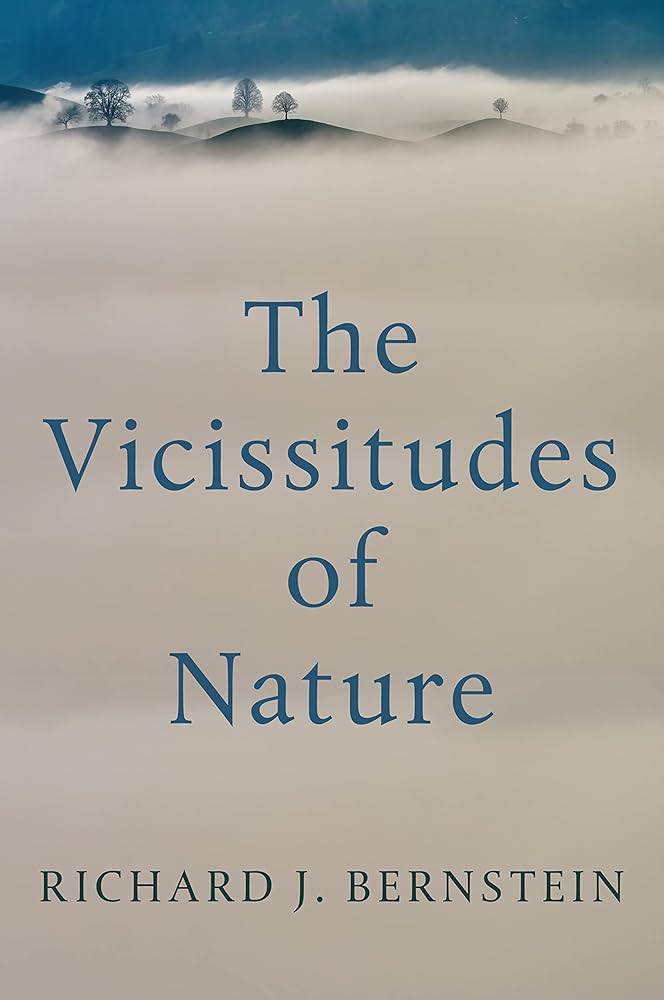The One: Descartes, Plato, Kant by Alan Badiou
Alain Badiou’s seminar, The One: Descartes, Plato, Kant, examines the concept of the One and its metaphysical dominance, proposing instead an ontology of multiplicity where “the One is not.” Through critical readings of Descartes, Plato, and Kant, Badiou challenges hierarchical and monistic frameworks, advocating for the “count-as-one” and the recognition of being as irreducibly multiple. This seminar offers insights into the evolution of Badiou’s thought while presenting lively, unconventional interpretations of key philosophical figures.
Alain Badiou’s seminar, The One: Descartes, Plato, Kant, dates from 1983-84, roughly a year after the publication of his first major philosophical statement, Theory of the Subject, published in 1982. While The One certainly picked up threads from Theory, it also anticipated the advances that would come to fruition with the publication in 1988 of his first truly great opus, Being and Event, which commences with the observation that philosophers from Parmenides to Spinoza have insisted on the ontological primacy of the One. In his lucid Introduction to the seminar, Kenneth Reinhold points out that, for Badiou, the question is not one calling for an argument as much as a decision – and Badiou’s decision is that ‘the one is not’, that is, to be is to be multiple; and multiples are themselves multiples of multiples. However, while Badiou does refer to a fundamental decision in this regard, he also does not shy away from arguments. For example, he invokes elsewhere the ‘well-known proof of the non-existence of the One’, that a set of all sets cannot exist, inasmuch as the existence of a set of all sets is contradictory: a multiple of all multiples is a contradiction in terms (In Praise of Mathematics, 81). What there is, or being, is the sheer multiplicity of the world, a plurality that is irreducible to any single organizing principle, such as Spinoza’s Substance (Deus sive Natura) or Hegel’s Geist. Mathematics is the science of the pure multiple – of the multiple as such – and so, as Badiou has famously argued, ontology is mathematics: mathematics is the science of being qua being.
Badiou’s seminar is about divesting the concept of the One (typically a stand-in for God) of its metaphysical preeminence and ‘replacing it with the operation he refers to as the “count-as-one”… a critical step on the path that led me to an ontology of the multiple “without-One”, or inconsistent multiple’ (xxxvi). The first four Sessions are taken up with a critical examination of Descartes’ Meditations on First Philosophy, with a particular focus on his proof for the existence of God. Beginning with Session One, Badiou establishes that Descartes’ introduction of subjectivism – that view that what I know first and with greatest certainty are the contents of my own mind – represents a decentering movement, which undermined the hierarchical view of the world and ‘ushered in the modern age of philosophy’ (1). What is remarkable about Descartes is that, despite being a mathematician, he rejects mathematics from the beginning in terms of providing a foundation for knowledge that will be, as he says in the Meditations, ‘stable and likely to last’.
The problem for Descartes, as Badiou explains in Session Two, is that his subject, the cogito, is not the guarantee of truth, nor does it ‘form the basis for a guarantee of truth’ (25). For that guarantee something else is needed, validation by a second existence, ‘a big Other, which is to say, God … for meaning to emerge, the Two is needed; the One isn’t enough’ (16). In Badiou’s reading, Descartes will not embrace the fundamental axiom of dialectical thought, namely that ‘the Two always precedes the One’ (17). In short, Descartes requires God, first and foremost, to provide a guarantee for truth, i.e., to guarantee the veracity of our clear and distinct ideas. Hence, his indispensable and foundational statement is that ‘nothing can be said in truth if God does not exist’ (24). This foundational problematic did not exist for Spinoza, for whom a true idea is its own guarantee – so that Spinoza’s approach, concerned with ‘the conditions under which we are in some way in fidelity with this “there is truth”’ differs entirely from Descartes’ approach: Spinoza ‘will study the system of effects of truth rather than the question of its guarantee’ (24).
In Sessions 3 and 4, Badiou subjects Descartes’ so-called ‘trademark’ argument for the existence of God to a rigorously close reading. This is certainly Descartes’ most original argument, and as Badiou underscores, it is not so much that Descartes ingeniously discovered this argument, but rather was inextricably led to it given the theoretical conditions he had set up for himself. Although his argument, like the traditional cosmological argument, depends on the principle of sufficient reason, Descartes makes no use of the latter given the radical doubt regarding the external world incurred by his ‘evil genius’ (or deceiving God) hypothesis: hence the cosmological argument ‘is completely rejected by Descartes, because the existence of the external world is the least certain thing there is’ (64). Descartes’ argument hinges on the presupposition that I have the idea of an infinite being, that there is a cause of my idea, and most crucially, that there must be as much reality contained in the cause as there is in the effect (i.e., my idea of God). ‘Indeed, if there’s more being in the effect than in the cause, there is a production of being from nothing, which, for Descartes, is not possible’ (67). What this means, in other words, is that Descartes rejects ‘the causality of lack … at least as much being must be found in the cause as in the effect, since nothing can be lost or come from loss’ (67). As Badiou states, ‘The whole proof of the existence of God is based on this’ (67). It is, for Badiou, Descartes’ refusal to countenance the causality of lack that was his fatal blind spot – for it is ‘the possible causal reality of lack, absence, or disappearance’ that allows for ‘the introduction of the category of the event and, with it, the possibility for truly revolutionary ruptures’ (70).
‘In my view’, Badiou will point out, ‘for achieving a nonhierarchical thinking of the multitude (which … is the ontological question of communism), the causality of lack is certainly an indispensable instrument’ (70). In asserting that reality comes in degrees – that a substance has more reality than an accident, and so on – Descartes was a traditionalist, recapitulating a ‘hierarchical vision of the multiple …’ (69). But this is not a cosmological hierarchy, as it would be in an Aristotelian or Thomistic ontology: ‘it’s the difference between ideas that is hierarchized … which is why he remains a modern thinker of the first rank’ (70). Descartes’ physical world is a ‘desubstantialized and dehierarchized world. That’s the Cartesian revolution’, albeit an incomplete one, given that ‘the cosmological dehierarchization is supplemented by the retention of a hierarchy of ideas’ (70). Ultimately, ‘Descartes lags behind his own desire to dehierarchize the multiple’. Badiou’s reading of Descartes offers much that is unusual and outside the mainstream – it is also one of the most purely enjoyable parts of the book. Unfortunately, he spends little time directly arguing for his more distinctive interpretations but refers the reader to his Theory of the Subject.
Sessions 5 through 10 are taken up with Plato, and more specifically with the Sophist and Parmenides, the latter being perhaps the most enigmatic of all Plato’s dialogues. Badiou shares with Plato the view that philosophy is locked in a kind perennial conflict with the sophists – be they ancient or modern. Historically, the sophists were the first professors of higher learning – many were undoubtedly professional teachers who, for a fee, taught young well-to-do men the politically valuable art of rhetoric, ‘of giving effective speeches’ (76). So, they are ‘connected in an important way with the democratic space’ – and as Badiou reminds us, Plato was no democrat, because ‘politics had to be based on truth’, which ‘couldn’t be subjected to the arbitrariness of contrasting arguments’ (76). Badiou’s observation that for Plato ‘sophistic nihilism was a sort of perpetual reminder … of the improbable vitality of the question of truth, especially in the political field’, could also be said for Badiou himself. We might remind ourselves here of Badiou’s fundamental claim that politics is, along with the sciences, artistic practices, and love, one of the four conditions of philosophy, and one of the domains in which truth-procedures can emerge. ‘In Plato’s view’, we are told, ‘the sophist is fundamentally characterized by his ability to present the false as true and the true as false’ (77). But if the false can be presented at all then it is, in some sense – that is, there is a being of nonbeing – and the complete description of the sophist will call for an ontology of nonbeing. This entails a certain break with Parmenides and the Eleatics ‘who refuse to accept that nonbeing is’ (78). There are very high political stakes involved here, and ‘the main thrust of the Sophist will be … to establish there is a being of nonbeing, and … to criticize as antipolitical the philosophical heritage of the theorists of pure being’ (78).
In Session 9 and 10, Badiou will take up the Parmenides, and particularly its second, notoriously difficult part, where we are offered several hypotheses regarding the One, and in each case shown the inextricable linguistic paradox it leads to. ‘The Parmenides is a dialogue of the master, the father. Yet this master is a figure that must be overcome …’ (117). Ultimately, Badiou will argue that Plato rejects both monism and dualism, and even radical multiplicity: rather, for Plato, ‘being is what is counted as one, which implies the concept of an intelligible place … that allows being to be sayable – and capable of change’ (xxix). Indeed, it is from his readings of the Sophist and Parmenides that Badiou will ‘derive the justifications for what will be one of the fundamental tenets of my ontology: ‘the One is not, there is only the count-as-one’ (xxxvii).
The last six sessions are concerned with Immanuel Kant, which is of particular interest because Badiou has expressed elsewhere his antipathy with respect to Kant. In a 2016 dialogue with Jean-Luc Nancy, Badiou acknowledges that it was ‘one of the damaging consequences of Kant’ that he appears to abandon with the greatest rigor the ‘theoretical question of being qua being’ (53).In The One, Badiou will acknowledge the traditional view that, for Kant, ‘since being qua being is outside the scope of experience, nothing universal can be said about it’ (164). Notably, however, Badiou will credit Heidegger with grasping that ‘despite appearances, Kant’s big question is actually the ontological question, that his fundamental question is the question of being’ (164). Indeed, Badiou argues that ‘it is being itself that is at stake in [Kant’s] work’ (165). Of course, for Kant, we can have no knowledge or cognition pertaining to being as such, or noumena, but only of phenomena, or in Badiou’s terms, ‘representation is subjectively structured and I cannot go beyond this structuring’ (165). But precisely because experience is correlated with objects, which we are able to cognize because they must adhere to our forms of knowing, there is something that experience does not structure, namely, objectivity itself. ‘The fact that objects of experience are in a position of objectivity does not depend on the subjective conditions … the position of objectivity in experience is not inherent in the structure … being is presented but not cognized’ (166). Kant acknowledged the thing-in-itself to be the unknowable cause of appearances, which was problematic because causality was a pure category of the understanding, i.e., part of the subjective structuring of experience. While the thing-in-itself could never be known, it could be thought, along with freedom, God, and immortality, the objects of traditional, or dogmatic metaphysics. Hence, Kant makes a crucial distinction between thinking and knowing, which will in turn be of great significance to Heidegger, and thought ‘is faced with what presents itself to cognition and pertains to being’ (166). What is clear is that our a priori forms of knowing do not constitute a pure logic, but ‘require a givenness of objectivity, a “there is” of being’ (167).
Badiou’s lectures on Descartes, Plato and Kant are fascinating as providing a glimpse into the gestation of his original thought in and through his engagement with these crucial predecessors. At the same time, his unusual readings can be lively, gripping, rich in stimulating asides and provocative allusions to other philosophers. In short, this seminar stands on its own and can be immensely appreciated quite independently of its role in Badiou’s philosophical development, or even by one who is coming to Badiou for the first time. To those readers I would simply add that, for Badiou, we cannot rescue God through a thoroughly immanent monism. It is monism that he opposes, on the grounds that the absolute referent cannot be in the form of the One. It cannot be the infinite expression of an eternal essence. We may also note that Badiou credits Spinoza with being the first thinker to recognize that a consistent materialism does indeed require an absolute referent – what Badious refers to as the absolute V (Vacuum or great void), the un-situated place, or super-infinity, where all the possible forms of multiple-being (hence of being tout court) are located. But, again, the class V is not a set, that is, it is not a form of being (analogously, Plato’s form of the Good was not itself a form), but the place where the formal possibility of being gathers, be it in the guise of the count-as-one or the possible forms of multiple-being as such.
Sam Ben-Meir
Dr. Sam Ben-Meir is a philosopher and educator whose work focuses on political philosophy, ethics, and contemporary political issues, serving as an assistant adjunct professor of philosophy at the City University of New York, College of Technology.



